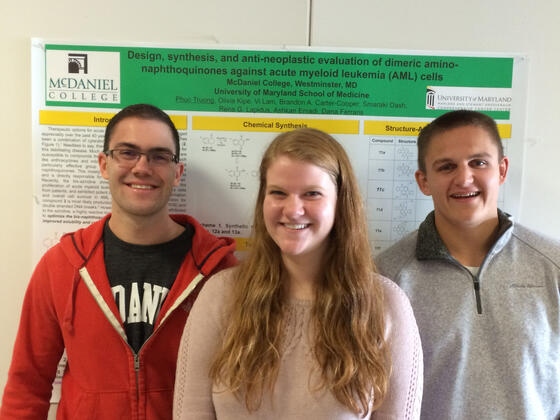Applied Mathematics – Data Analysis
Do you have a passion for uncovering insights, solving problems, and making data-driven decisions? McDaniel College's Data Analysis degree program, a specialization of the Applied Mathematics major, will prepare you for data analytics jobs and data analytics graduate programs — including McDaniel's own M.S. in Data Analytics.
Mortarboard
Degree Types
Major, Specialization
Institution
Complementary Programs
Heart
Distinctive Requirements
One Writing Course
Document
Graduate School Opportunity
McDaniel Commitment in Action







